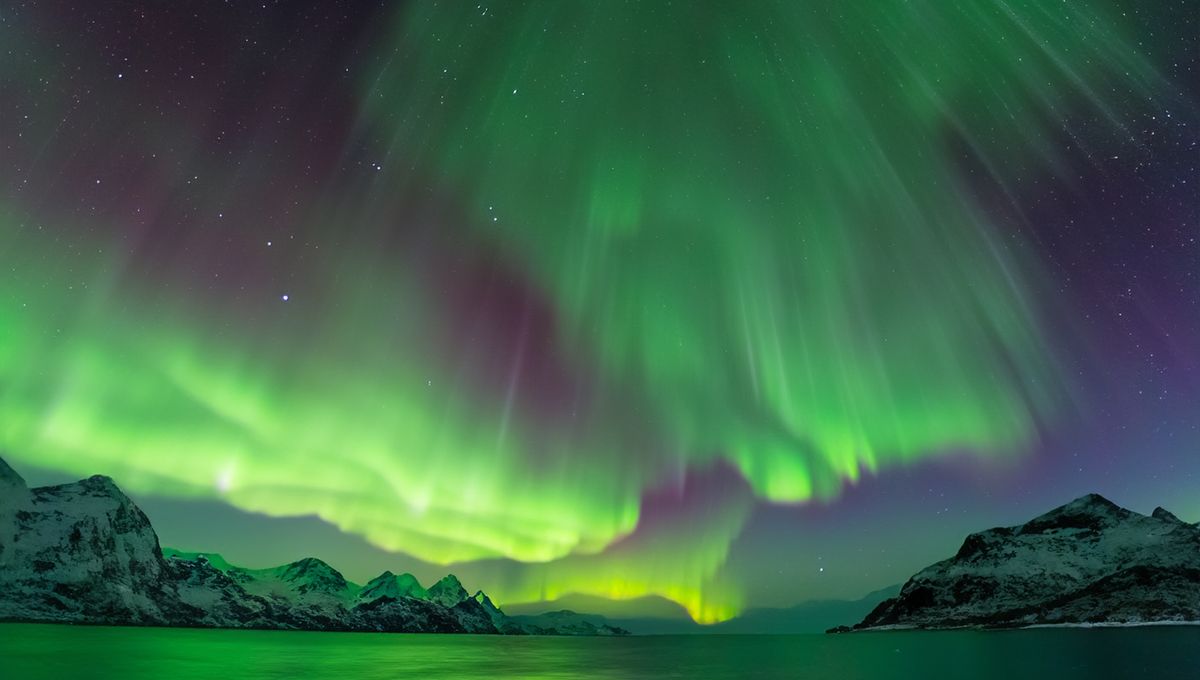
Remember last year when more of us than usual were treated to a spectacular display of aurorae? If you’re one of the people who missed out, you could be in with another chance of seeing the show this week, thanks to a phenomenon known as the Russell-McPherron effect.
ADVERTISEMENT
While aurora season is generally considered to be between late August and mid-April, there are two times in that period that usually see the most auroral activity: September and March, specifically, around the fall and spring equinoxes. And, as it happens, the spring (or vernal) equinox is on its way in the Northern Hemisphere this week – on Thursday, March 20.
For a long time, the reason for this pattern eluded scientists. Then, in 1973, two geophysicists called Christopher Russell and Robert McPherron presented a theory involving the magnetic fields of the Earth and the Sun.
Most of the time, the Earth and Sun’s magnetic fields are misaligned, leaving our planet’s field less open to the aurora-causing effects of the solar wind. However, towards the equinox, the two fields line up but point in opposite directions, which allows for greater capture of the charged particles that cause aurora.
It should be noted, however, that Russell and McPherron aren’t the only ones who’ve provided an explanation – other theories as to the uptick in geomagnetic activity, though perhaps not as widely accepted, do exist.
“During the equinoxes, the orientation of the Earth’s poles is (almost) perpendicular to that of the Sun,” Dr Ciaran Beggan, a geophysicist at the British Geological Survey, explained to Newsweek.
“This maximizes the ‘coupling’ between the solar wind and the Earth’s magnetic field. In summer or winter, one of the Earth’s poles is pointing at an angle from the solar wind so the coupling between them is lower and hence there are fewer storms on average.”
ADVERTISEMENT
In any case, it’s a phenomenon that may well be exacerbated this year given that we’re currently in solar maximum aka the peak of the current solar cycle – the Sun’s cycle of activity that, over the course of 11 years, goes from minimum to maximum and back again.
Solar maximum is a period that can see a drastic increase in sunspots, solar flares, and coronal mass ejections, which can send huge floods of charged particles toward the Earth. That’s why, last May, Earth had its strongest geomagnetic storm in 20 years, with aurorae seen far further south than usual.
If we get another absolute whopper of a sunspot around the time of the equinox on Thursday, then it’s possible that we may just get to see an even more intense display than before.
[H/T: Live Science]
ADVERTISEMENT
An earlier version of this article was published in September 2024.
Source Link: Russell-McPherron Effect: Why "Cracks" In Earth's Magnetic Field Mean We Get Peak Auroras At Equinox